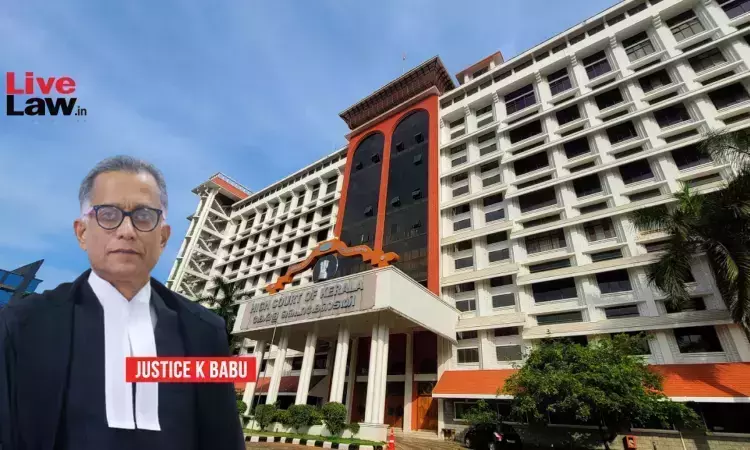- Home
- /
- High Courts
- /
- Kerala High Court
- /
- Article 227 Of The Constitution...
Article 227 Of The Constitution Cannot Be Used As An Appellate Or Revisional Power: Kerala High Court
Gyanvi Khanna
10 Feb 2025 8:09 PM IST
The Kerala High Court, while dismissing a petition, observed that its supervisory jurisdiction, as provided under Article 227 of the Constitution, cannot be used as an appellate or revisional power. Such power must be exercised sparingly and in cases of apparent error or grave injustice.“The power under Article 227 of the Constitution would be restricted to interference in cases of...
The Kerala High Court, while dismissing a petition, observed that its supervisory jurisdiction, as provided under Article 227 of the Constitution, cannot be used as an appellate or revisional power. Such power must be exercised sparingly and in cases of apparent error or grave injustice.
“The power under Article 227 of the Constitution would be restricted to interference in cases of grave dereliction of duty or flagrant violation of law and would be exercised most sparingly in cases where grave injustice would be done unless the High Court interferes. It cannot be used as an appellate or revisional power.
The supervisory jurisdiction is not available to correct mere errors of fact or law unless the following requirements are satisfied-- (1) the error is manifest or apparent on the face of the proceeding, such as when it is based on clear ignorance or utter disregard of the provisions of law; and (2) a grave injustice or gross failure of justice occasioned thereby.,” held the Court.
The origin of the present case lies in a specific performance suit filed by the plaintiffs for the execution of a sale deed. However, the Trial Court referred the matter to the Lok Adalat. Therein, parties arrived at a settlement and an award was passed based on a joint statement.
Pertinently, as per the settlement, in case of default on the defendant's part, the plaintiffs were at liberty to deposit the sale consideration before the Court and apply to get the document registered.
Based on this, the plaintiffs filed an application before the Trial Court seeking permission to deposit the balance sale consideration as the defendants defaulted. Since this application was allowed, the defendants approached the High Court, challenging the same.
A Single-judge Bench of Justice K. Babu perused the arguments advanced at length and then adverted to the facts of the present case. The Court noted that as per the terms, the defendants were to hand over the prior documents, for the property, within three weeks. Though the defendants had pleaded that they handed over the documents to the plaintiffs' document writer, the same was not supported by any evidence. Building on this, the Court observed:
“The Court may presume under Section 114(g) of the Indian Evidence Act that evidence which could be and is not produced would, if produced, be unfavourable to the person who withholds it. Therefore, the necessary conclusion is that the defendants failed to show that they discharged the first obligation, that is, the duty to hand over the documents within three weeks. The plaintiffs were expected to tender the balance sale consideration only after the delivery of the documents.”
Based on this, the Court concluded that the defendants failed to perform their part of the contract. As mentioned above, the Court also observed that its power under Article 227 cannot be used as an appellate or revisional power. In view of this, the Court refused to interfere with the impugned order and dismissed the present petition.
Appearances:
Petitioners: Advs. R.Harishankar and Smt.Parvathy Nair
Respondents: T.R.Harikumar Arjun Raghavan
Case Name: T.M.Leela and another V. P.K.Vasu and another., OP(C) NO. 683 OF 2021
Citation: 2025 LiveLaw (Ker) 94



